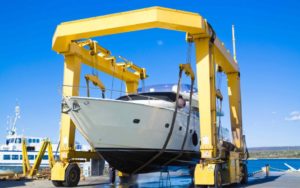By Cale Pickford
This article appears in the Fall 2020 edition of Maine Realtor Magazine.


Cale Pickford
Even the most optimistic among us probably would not have forecast the current boom in residential real estate sales. A common refrain over these last months is that there is no better place to weather a global pandemic than Maine. People all over the country agree and more and more families are making the move and calling Maine home. With multiple offers, COVID-19 protocols, virtual showings and listing inventory at an all-time low, real estate agents have never been busier. Such a frantic pace makes it easy to forget important steps of due diligence and best practices. Checklists are an important tool to keep the agent organized and assist in reducing liability and provide better customer service.
There are numerous real estate agent checklists available online and in circulation at agencies. Keep in mind when using a checklist, that no detail is too small when it comes to due diligence. Working proactively will not only protect you from liability it will save you a lot time in the long run – a valuable asset in a hot real estate market. Of course, insurance should be on every real estate agent’s checklist and the following can serve as a list within your list:
Location
The old adage that the three most important things in real estate are location, location and location is just as true for insurance underwriting. Many standard national insurance companies and direct writers do a great job insuring suburban homes but often cannot cover isolated, rural and coastal (in particular island) locations. If you are involved with a sale of a property with one or more of these attributes, makes sure the buyer is working early to secure homeowners insurance.
Flood Plain Concerns
It’s logical to pair flood plain concerns with location, because flood plain issues can crop up with any property, not just waterfront homes. If you think there’s even a remote chance that a home could be impacted by the special hazard flood plain, you should pull the flood insurance rate maps or work with an insurance agent to provide a flood zone determination. The sooner flood plain concerns can be addressed, the more likely you’ll have a favorable outcome.
Occupancy
Many people have decided to move to Maine full time but we’re still a state with one of the highest ratio of secondary homes to primary in the country. Secondary homes are always more complicated to insure than primary homes. In addition to having fewer insurers to choose from, owners of secondary homes may be required to install central fire, burglar and low temperature alarms, hire a caretaker, make sure the home is accessible year around, and winterize the plumbing.
Business Pursuits
With more and more people working and learning from home, the lines between personal and business has been completely blurred, and in many cases, almost to invisible. Homeowners should review their plans to use their home for business with the insurer. Another timely consideration is home-schooling pods, a unique 2020 concern which should also be reviewed with an insurance agent for coverage considerations. Home-based businesses such as woodworking, bakeries, boat building, and any situations where clients regularly visit the home, can often disqualify one from a homeowner’s policy all together.
Renovations
It makes perfect sense to renovate a home immediately after purchase − just make sure that the buyer communicates their plans with their insurer. Especially with such limited inventory, buyers cannot afford to be picky so there’s a strong likelihood someone will want to modify the home to suit their tastes and need. Depending on the extent of the renovation, a buyer might not even be eligible for a homeowner’s policy. In an instance such as this, the buyer might need to secure a builders risk or course of construction policy which greatly limits coverage and often costs far more than the equivalent homeowners’ policy.
Vacation Rental
The pandemic has only accelerated the trend toward more and more families eschewing traditional hotels and inns for private vacation rental homes. To meet the demand, more and more homeowners are opening up their second and, in many cases, primary homes, to these weekly tenants. Using one’s home this way can have significant implications on insurance.
It would be nice if only one of these items on the list would occur per closing, but it is often the case these issues come in twos or threes compounding the problem. Lists allow the real estate agent to keep on track and get ahead of issues before they threaten to derail the deal. Smooth deals mean happy clients which leads to more referrals.

 Sadly, boating season will come to an end soon, and Old Man Winter will be paving the way for snowmobiles. Winter storage for boats takes some careful planning. If you follow a checklist, winterizing your boat can be easy, ensuring your boat will be in great shape come spring.
Sadly, boating season will come to an end soon, and Old Man Winter will be paving the way for snowmobiles. Winter storage for boats takes some careful planning. If you follow a checklist, winterizing your boat can be easy, ensuring your boat will be in great shape come spring.
